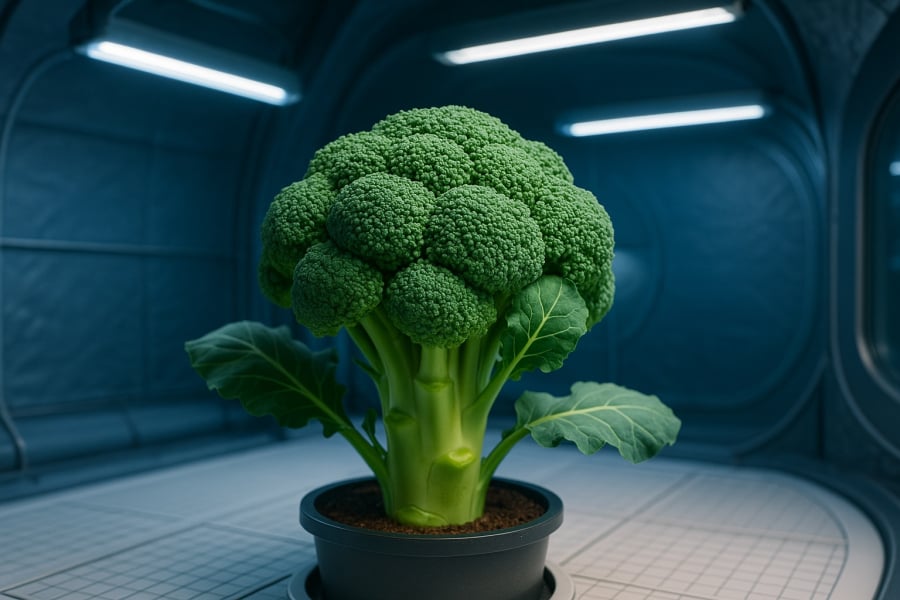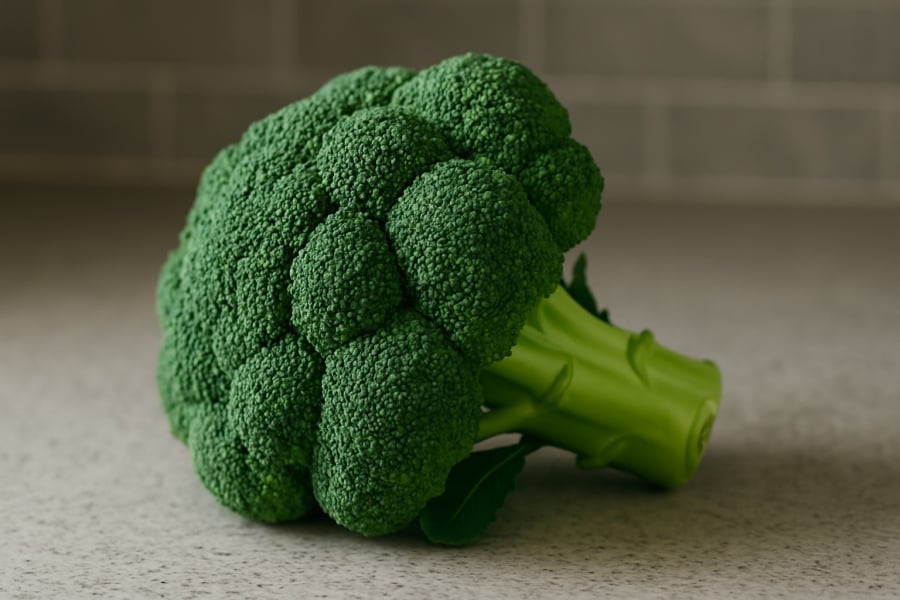In recent years, as scientists increasingly seek solutions for providing food on space missions, a vegetable familiar to Vietnamese has caught NASA’s attention: broccoli. Dubbed a “superfood,” broccoli is renowned for its flavor and boasts an array of exceptional health benefits. Let’s explore the reasons why this vegetable has become a top choice in meals for every family.
Why Has NASA Chosen Broccoli for Their Missions?
Did you know that a familiar vegetable like broccoli could be so nutritionally valuable? Highly regarded by NASA experts for its dense nutritional content, broccoli is not just a delicious treat but also a natural “doctor” that improves overall health.
According to research by American nutrition experts, broccoli contains essential nutrients such as vitamin K, vitamin C, folate, potassium, and fiber. Notably, it also contains beneficial plant compounds like sulforaphane and glucosinolates, proven to aid in cancer prevention and treatment. Additionally, broccoli is an excellent source of fiber, supporting digestive health and boosting cardiovascular well-being. These advantages have led NASA to consider this vegetable a potential option for long-duration space missions.

Fiber-Rich Broccoli for Digestive Health and Immune Support
“Fiber plays a crucial role in maintaining a healthy gut microbiome,” shares nutrition expert Nichole Andrews, as quoted in VnExpress. This implies that fiber not only enhances nutrient absorption but also bolsters the immune system.
A fiber-deficient diet can disrupt the gut microbiome, increasing the risk of chronic illnesses such as diabetes and metabolic disorders. Therefore, incorporating broccoli into your daily menu is an excellent way to enhance overall health. With its high fiber content, broccoli ensures smooth digestion and aids in effective weight loss.
Cancer-Fighting Properties to Protect Against Severe Diseases
Broccoli is recognized as a potent cancer-fighting food due to its compounds, sulforaphane, and glucosinolates. Research from the University of California indicates that sulforaphane can inhibit and even destroy cancer cell growth. These compounds have proven effective against various cancers, including prostate, breast, colon, skin, bladder, and oral cancers.
Notably, a study published in Vietnamnet revealed that regular broccoli consumption could reduce the risk of colorectal cancer by up to 28%. This not only safeguards against cancers but also enhances overall gut health.
Cardiovascular Benefits: Lowering Cholesterol and Reducing Inflammation
In addition to its cancer-fighting properties, broccoli is a trusted ally for cardiovascular health. Rich in fiber and beneficial compounds, this vegetable can help lower cholesterol, reduce inflammation, and protect heart health. According to a study on elderly women published in ZingNews, a diet rich in cruciferous vegetables, including broccoli, may decrease the risk of atherosclerosis, the primary cause of strokes and heart attacks.
Furthermore, broccoli possesses potent anti-inflammatory properties due to its abundance of antioxidants and anti-inflammatory compounds. This helps soothe intestinal inflammation and lowers the risk of chronic inflammation, which is associated with severe diseases like diabetes, asthma, and certain cancers.

Enhancing Digestive Health and Preventing Intestinal Disorders
Broccoli, being rich in prebiotic fiber, serves as an ideal “food” for beneficial gut bacteria. A healthy microbiome not only prevents diseases but also improves digestion, relieves constipation, and maintains a stable digestive system. If you frequently experience digestive issues or suffer from intestinal inflammation, consider making broccoli a regular part of your diet.
Effective Anti-Inflammatory Properties for Comprehensive Body Protection
If you struggle with intestinal inflammation or irritable bowel syndrome (IBS), including broccoli in your meals is an excellent way to alleviate uncomfortable symptoms. According to research published in Dân Trí, this vegetable can soothe intestinal inflammation and reduce chronic systemic inflammation. This not only improves gut health but also safeguards the body from inflammation-related diseases.
Some Precautions When Enjoying Broccoli
- Gas and Bloating: Broccoli, being high in FODMAPs, can cause gas and bloating. If you’re new to this vegetable, start with small amounts and cook it thoroughly to aid digestion.
- Kidney Stone Risk: Broccoli contains oxalates, which can contribute to kidney stone formation in susceptible individuals. Those with a history of kidney stones should consume it in moderation and consult a doctor.
- Allergic Reactions: Although rare, some individuals may be allergic to cruciferous vegetables. If you experience abnormal reactions after consuming broccoli, refrain from eating it and seek medical advice.
Conclusion
Broccoli is not just a popular vegetable but a “superfood” that offers comprehensive health benefits. From improving digestion and boosting immunity to reducing cancer risk and protecting heart health, this vegetable deserves a place in every family’s meal. Try incorporating broccoli into your daily diet and experience the positive changes it brings to your well-being!



































